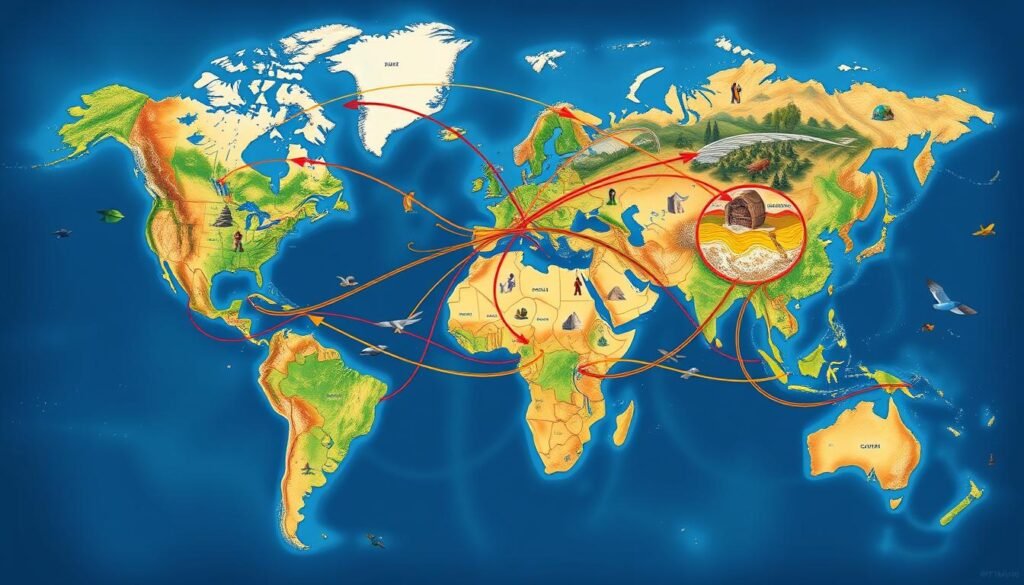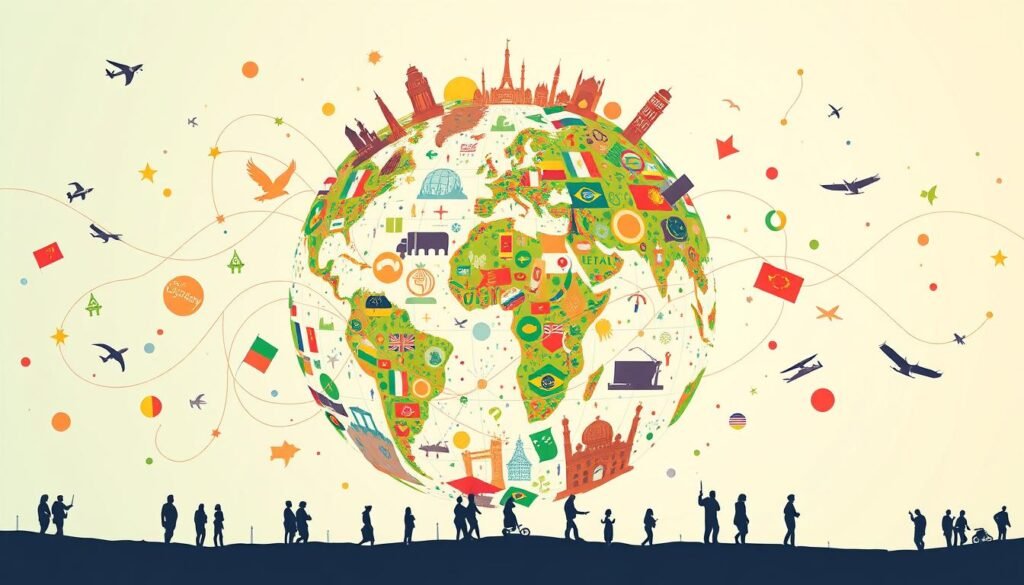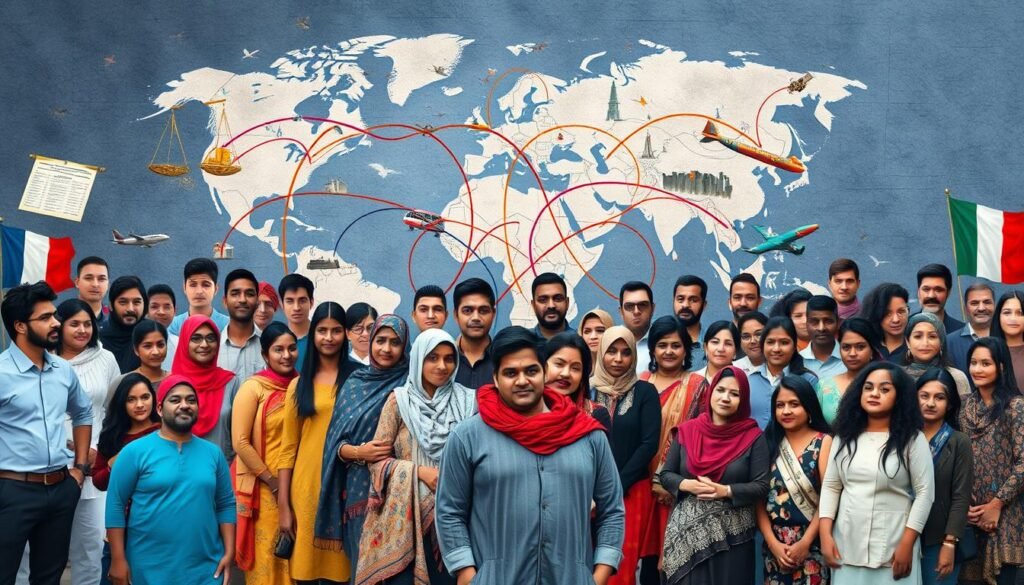Exploring Migration: Patterns, Causes, and Impact
Migration is the movement of people across borders. It’s a complex and multifaceted phenomenon that has shaped human history. From ancient migrations to today’s cross-border movements, it continues to fascinate us. But what drives this global migration, and how does it affect our world?
In this article, we’ll explore the intricate patterns, causes, and impacts of migration. We’ll shed light on this dynamic and often misunderstood topic.

Understanding the Concept of Migration
Migration is a key part of human history. It’s when people move from one place to another. This can happen within a country, called internal migration, or across borders, known as international migration.
What is Migration?
Migration means moving from one place to another. People do this to find a new home or better opportunities. Reasons for moving include economic, political, social, or environmental factors.

The Impact of Migration on Economies
The economic effects of migration are complex and varied. Both good and bad impacts are seen in host economies. As the world connects more, it’s key for leaders and experts to grasp these effects.
Benefits of Migration for Economies
Migrants add to economic growth in many ways. They bring skills, expertise, and labor, filling gaps and sparking innovation. The contribution of migrants to economic growth is clear, boosting GDP, productivity, and entrepreneurship.
They also diversify the workforce, bringing fresh ideas and perspectives. This boosts creativity and problem-solving, making the economy more productive and competitive.
Challenges of Migration for Economies
Despite the benefits, host countries face challenges. Large migration can strain social services and infrastructure, like housing and healthcare. This increases demand for public services.
There’s also the risk of labor market disruptions. An influx of migrant workers can affect wages and jobs for locals. This can cause political and social issues, which leaders must tackle.
Migration Policies and Regulations
The world is changing fast, and so are the rules for moving people. Laws and agreements around the world are getting more complex. They help guide where people can go and how they can live.

The Future of Migration
The world is changing fast, and so is migration. New patterns and technologies are shaping how we move around. These changes will make the future of migration very different.
Trends and Projections
Migration trends are shifting in big ways. Here’s what’s expected:
- Digital nomadism and remote work will let more people work from anywhere. This means more people will move around the world.
- Climate change and environmental issues will push people to move. They’ll seek safety from disasters and lack of resources.
- New tech in travel and communication will make moving between countries easier. This will help share ideas and cultures.
- Changes in population, like aging and fewer births, will lead to more people moving for work. This is because some areas will need more skilled workers.
These changes will deeply affect migration. They bring both chances and challenges for everyone involved.
| Migration Trend | Projected Impact |
|---|---|
| Digital nomadism and remote work | Increased international mobility and flexibility |
| Climate change and environmental challenges | Increased displacement and migration |
| Advancements in transportation and communication | Easier cross-border movement and cultural exchange |
| Demographic shifts | Increased need for cross-border labor migration |
“The future of migration is a complex and dynamic landscape, one that will require innovative solutions and collaborative approaches to navigate the challenges and capitalize on the opportunities.”
Migration: Personal Stories and Experiences
Migration is more than just numbers and debates. It deeply affects the lives of many worldwide. We’ll look at the human side of migration, sharing stories of those who left home for new chances, safety, or a better life.
These personal stories help us understand migrants’ diverse reasons, experiences, and challenges. They show the resilience and determination of migrants. From refugees to entrepreneurs, these accounts highlight the struggles and triumphs of migration.
Migration is more than just numbers and debates. It deeply affects the lives of many worldwide. We’ll look at the human side of migration, sharing stories of those who left home for new chances, safety, or a better life.
Conclusion
Migration is a complex issue that affects many people and societies worldwide. It has deep impacts on individuals and the global community. Understanding migration is key to addressing its challenges and unlocking its benefits.
This article has covered the basics of migration. We looked at why people move, the patterns they follow, and how it affects the world. It’s important to know these things to make good policies and have informed discussions.
Knowing about migration helps us build a fairer and more welcoming world. We can tackle its problems and make the most of its benefits. By learning from this journey, we can move forward with kindness and understanding towards all people.
